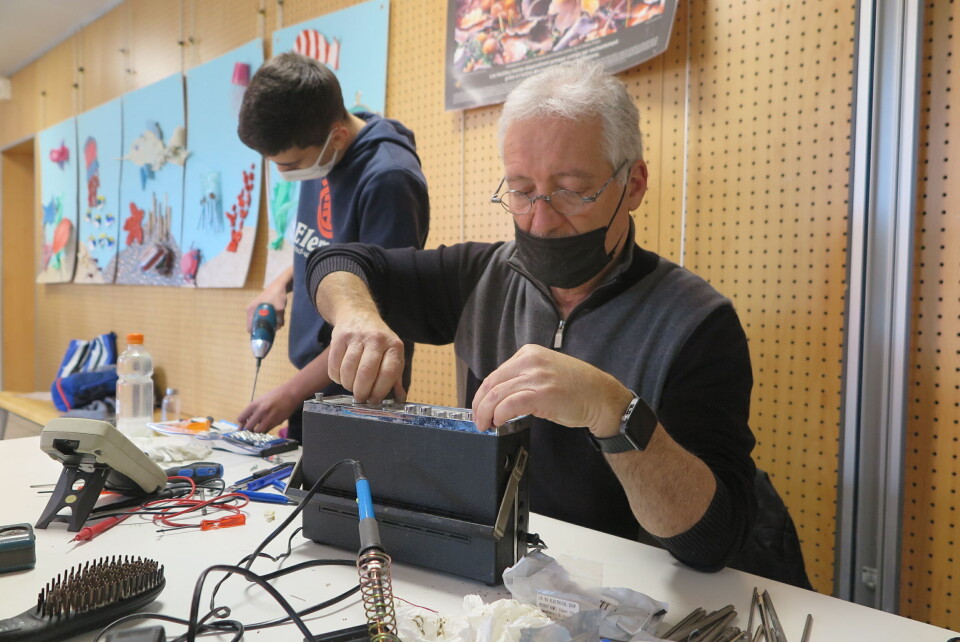-
France’s wild garlic season is here – but foragers should beware toxic lookalikes
Spring brings the fragrant plant to woodlands nationwide. We explain what to look out for
-
Record river levels, more evacuations: Latest on flooding in south-west France
Alerts are in place across five departments and residents in some areas are told to stay home
-
French second-home visa issues raised in House of Lords
British people experience an "expensive and bureaucratic process" to continue living in France
Repair Cafés: a way to save broken items from the bin in France
There are now 400 such venues in France. We visited one in Nice to see how it works

A project to reduce the number of household objects being thrown away has taken root in France, with more than 400 so-called Repair Cafés now open.
The Repair Café phenomenon started in Amsterdam in 2009, and a foundation of the same name was created two years later to support groups that want to set up their own.
Visitors bring broken items from home and, with volunteer specialists, start making repairs together while enjoying a tea or coffee.
Although the service is free, any new materials used to fix items must be paid for, and voluntary donations are welcome.
Some 2,263 Repair Cafés are now listed around the world, with France among the countries catching on.
Repair Café Nice was created in 2013. It is a monthly event organised around a Facebook page, with the location and schedule of upcoming workshops published a week before.
Christine Musico, 65, who made a return visit to the Repair Café in February when it was hosted at Nice’s Maison de l’environnement, said: “I come here to avoid throwing objects away by recycling what I already have.”
Read more:Home goods, clothes: How to find best places to recycle in France
Ms Musico handed three pairs of torn jeans to Laurence Muffat, who works at the venue and has been helping out as an amateur dressmaker for the Repair Café for four years.
She said the initiative was closely aligned to the environmental causes and ‘zero waste’ policy advocated by Maison de l’environnement.
Hamamda Imaine, a 36-year-old special-needs teacher who came with a broken food processor, cited both environmental and economic reasons for her visit. She said: “I am thankful they are around.”
Ms Imaine said the shop where she bought her appliance had quoted €30 to replace the broken part – almost as much as buying a new one.
She was directed to the table of Yves Tabone, 66, a retiree and president of Repair Café Nice since 2015, when he took over after the founder moved back to the Netherlands.
Read more:Washing machines, phones: What is new French label of 'repairability'?
The majority of Repair Café Nice volunteers are retirees who have occupied positions within the aviation and rail industries during their professional lives. Events have been hosted in venues across Nice, including the Nucéra library and the Galice association.
Some have also taken place during the summer in Isola in the Alps.
Mr Tabone has been battling with Nice mairie for two years to secure a fixed space for the sessions so that Repair Café organisers can store tools and equipment and commit to working longer hours.
Most visitors come in the hope of having several items fixed, as with Ms Musico, although Repair Café has a single-item repair policy.
The tendency of volunteers to be charitable and accept several items often creates delays.
Mr Tabone’s workload included an old Grundig car radio, a frying pan, a kettle, and Ms Imaine’s food processor.
“No matter if it works or not, at least I have tried,” she said.
Related stories:
French mayor collects fly-tipped waste and dumps it at culprits’ house
‘New bins only make recycling in France more difficult’
How does recycling work in France?
























